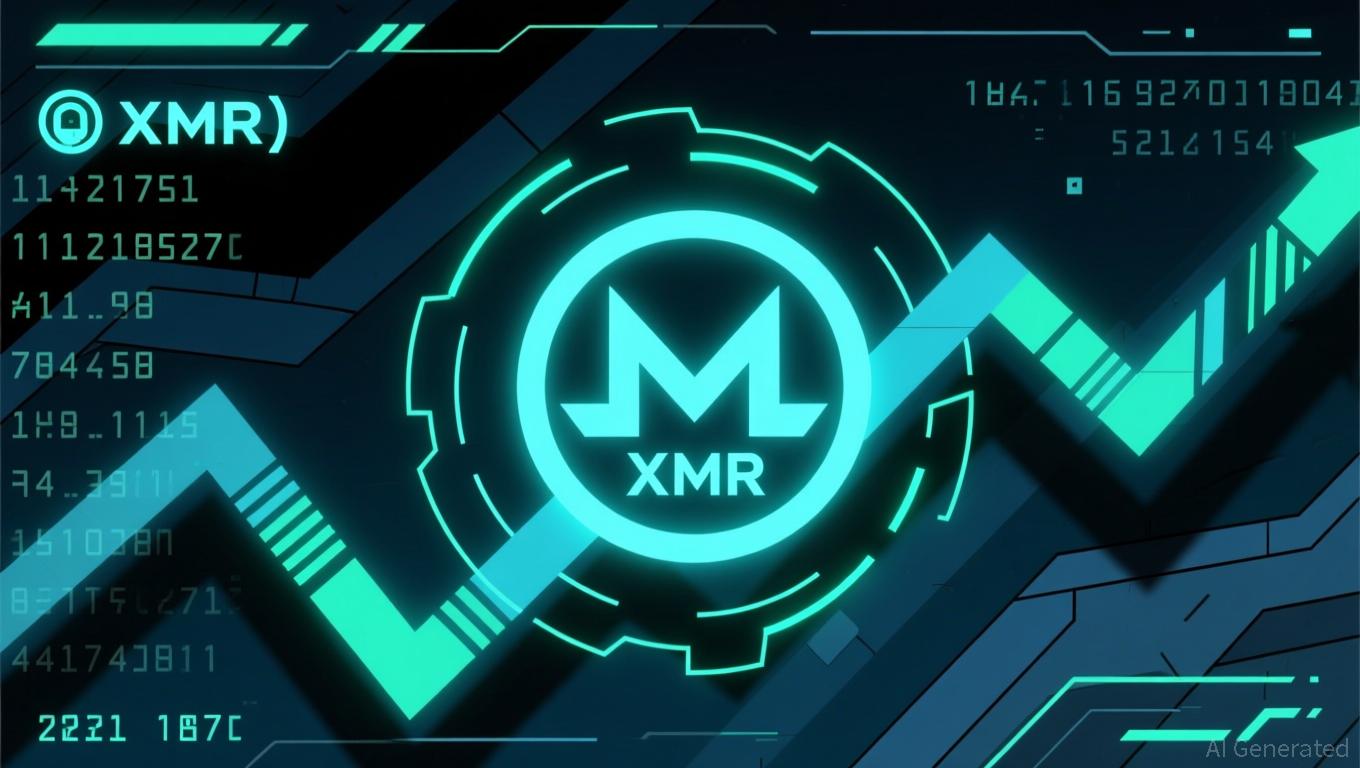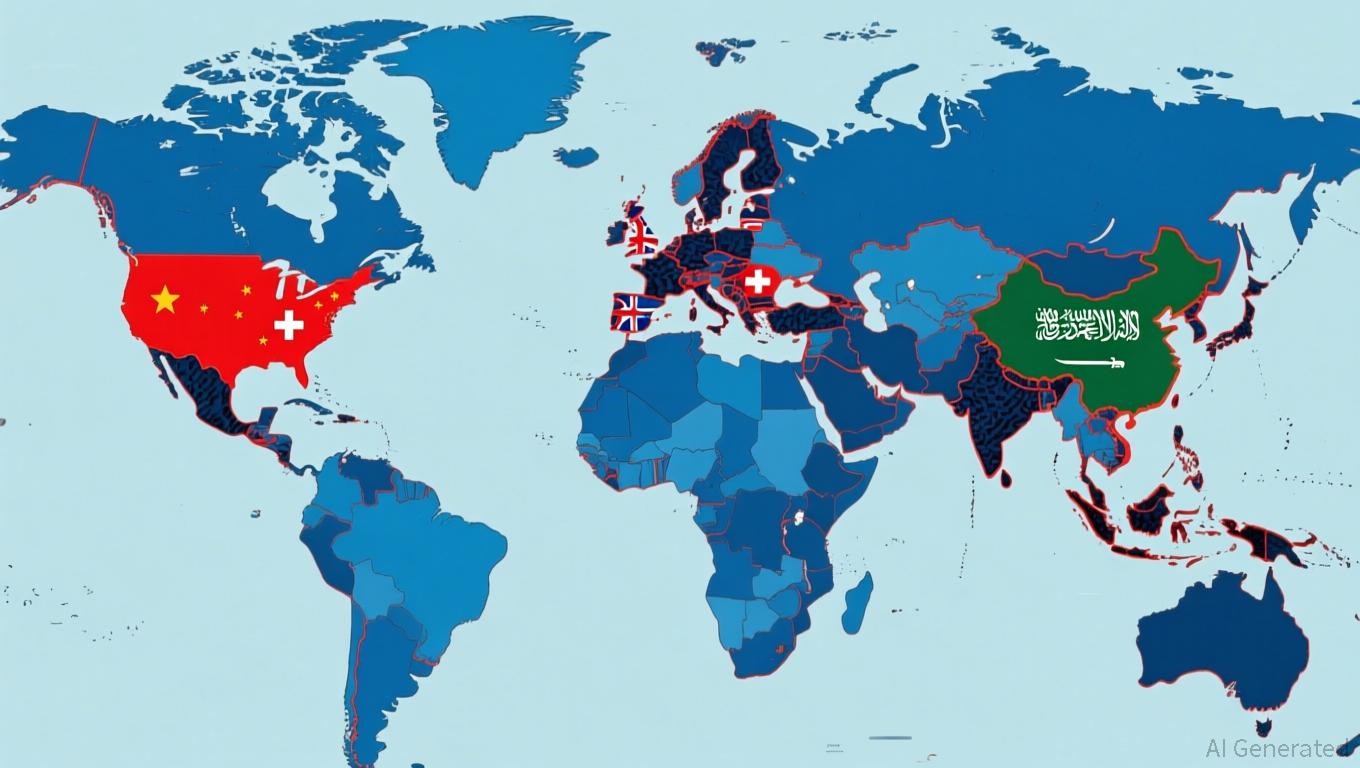AI and Blockchain Unite to Transform the Landscape of Institutional Finance
- Nvidia reaches $5 trillion market cap, driven by AI chip demand and 1,500% five-year stock growth, cementing its role as a tech sector bellwether. - CEO Jensen Huang highlights quantum computing investments and 6G partnerships, while Circle's Arc testnet bridges traditional finance and blockchain with institutional support. - Arc's USDC-based infrastructure enables sub-second settlements and programmable payments, attracting BlackRock, Goldman Sachs, and DeFi protocols to test institutional-grade use cas
Nvidia has reached an unprecedented $5 trillion in market value, cementing its leadership in the AI industry. Its stock has soared 45% this year and skyrocketed more than 1,500% over the past five years, making it the
At the same time, the financial sector is experiencing its own evolution with the rollout of Circle’s Arc testnet, which seeks to connect legacy finance with blockchain technology. Arc, a layer-1 blockchain, has drawn participation from over 100 major institutions—including BlackRock, Goldman Sachs, Visa, and Deutsche Bank—to pilot rapid settlements, programmable payments, and international transactions, according to

Jeremy Allaire, CEO of Circle, highlighted Arc’s ambition to serve as a “neutral, community-governed network” that links regional economies with the global marketplace, as mentioned in
Although
Disclaimer: The content of this article solely reflects the author's opinion and does not represent the platform in any capacity. This article is not intended to serve as a reference for making investment decisions.
You may also like
Monero’s reputation for privacy faces challenges from modular competitors and evolving regulations
- Monero (XMR) nears $400 as privacy-focused crypto gains traction amid evolving market demands for modular solutions. - Emerging rivals like Solana's GhostwareOS and Zcash challenge Monero's dominance with interoperable privacy features. - Regulatory pressures, including South Korea's expanded AML rules, heighten scrutiny on privacy coins despite their anti-surveillance design. - Analysts highlight Monero's "extreme privacy" legacy but note growing adoption of integrated privacy tools in active blockchain

As Crypto Markets Fluctuate, BI DeFi's Eco-Friendly Cloud Approach Draws Growing Attention from Institutions
- BI DeFi launches a blockchain-powered cloud computing platform combining renewable energy and advanced security to stabilize crypto market risks. - XRP's $180M inflow highlights growing institutional interest in digital assets despite broader market volatility and billions in sector outflows. - The platform's green energy data centers and automated yield settlements address ESG priorities while reducing blockchain's carbon footprint. - User-friendly features like $17 introductory contracts and $50K affil

FDV's Dilemma: Assessing Opportunity While Concealing Risk
- FDV (Fully Diluted Valuation) has become a 2025 key metric for evaluating crypto projects' long-term risks and scalability, especially for new layer-1 blockchains like Monad and Apertum. - Monad's $3.9B FDV despite 12% unlocked supply highlights "low float, high FDV" dynamics, while Apertum's 1.05x FDV-to-market cap ratio signals minimal dilution risk. - Critics note FDV's limitations, including price volatility assumptions and irrelevance for uncapped supply projects like Ethereum , requiring contextual

Switzerland Delays Crypto Information Exchange Pending International Coordination
- Switzerland delays crypto tax data sharing with foreign nations until 2027, citing unresolved CARF partner agreements. - The OECD's 2022 framework requires member states to exchange crypto account details, but 75 countries including the EU and UK face implementation challenges. - Transitional measures ease compliance burdens for Swiss crypto firms while awaiting finalized international data-sharing protocols. - Major economies like the U.S., China, and Saudi Arabia remain outside CARF due to non-complian
